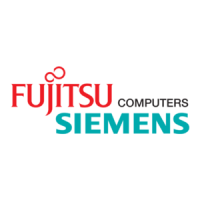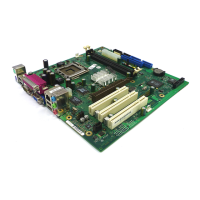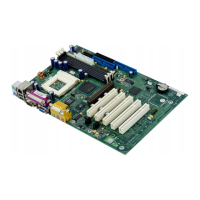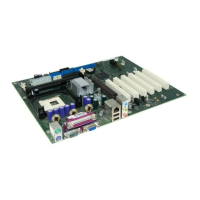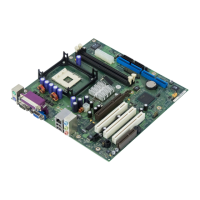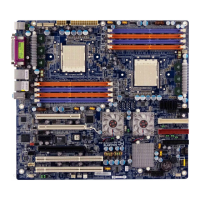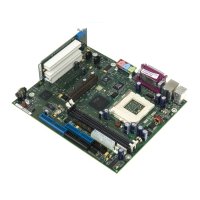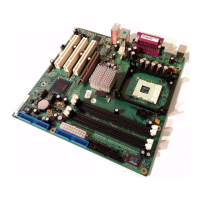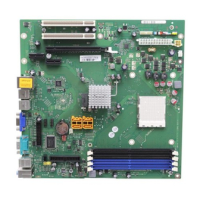Appendix I: Glossary
56 A26361-D1691-Z120-1-7619, Edition 1
EEPROM (Electrically Erasable Programmable ROM): also called Flash BIOS, is a ROM chip
which can, unlike normal ROM, be updated. This allows you to keep up with changes in the BIOS
programs without having to buy a new chip. TYAN’s BIOS updates can be found at
http://www.tyan.com
EMRL: Embedded RAID Logic. An Adaptec specific RAID technology.
ESCD (Extended System Configuration Data): a format for storing information about Plug-n-Play
devices in the system BIOS. This information helps properly configure the system each time it
boots.
Fault-tolerance: a term describing a system where one component can quickly be replaced without
causing a loss of service, such as in a RAID system.
Firmware: low-level software that controls the system hardware.
Form factor: an industry term for the size, shape, power supply type, and external connector type of
the Personal Computer Board (PCB) or motherboard. The standard form factors are the AT and
ATX, although TYAN also makes some Baby-AT and ATX Footprint boards.
Global timer: onboard hardware timer, such as the Real-Time Clock (RTC).
Handshaking: a process where two devices initiate communications. One device, typically the
server, sends a message to another device, typically a client, in order to request establishment of a
communications channel. The two devices will then exchange messages back and forth in order to
settle on a communications protocol.
HDD: stands for Hard Disk Drive, a type of fixed drive.
H-SYNC: controls the horizontal synchronization/properties of the monitor.
IC (Integrated Circuit): the formal name for the computer chip.
IDE (Integrated Device/Drive Electronics): a simple, self-contained HDD interface. It can handle
drives up to 8.4 GB in size. Almost all IDEs sold now are in fact Enhanced IDEs (EIDEs), with
maximum capacity determined by the hardware controller.
IDE INT (IDE Interrupt): a hardware interrupt signal that goes to the IDE.
I/O (Input/Output): the connection between your computer and another piece of hardware (mouse,
keyboard, etc.)
Initial Program Load (IPL): a feature built into BBS-compliant devices, describing those devices as
capable of loading and executing an OS, as well as being able to provide control back to the BIOS if
the loading attempt fails.
IPL: see Initial Program Load.
